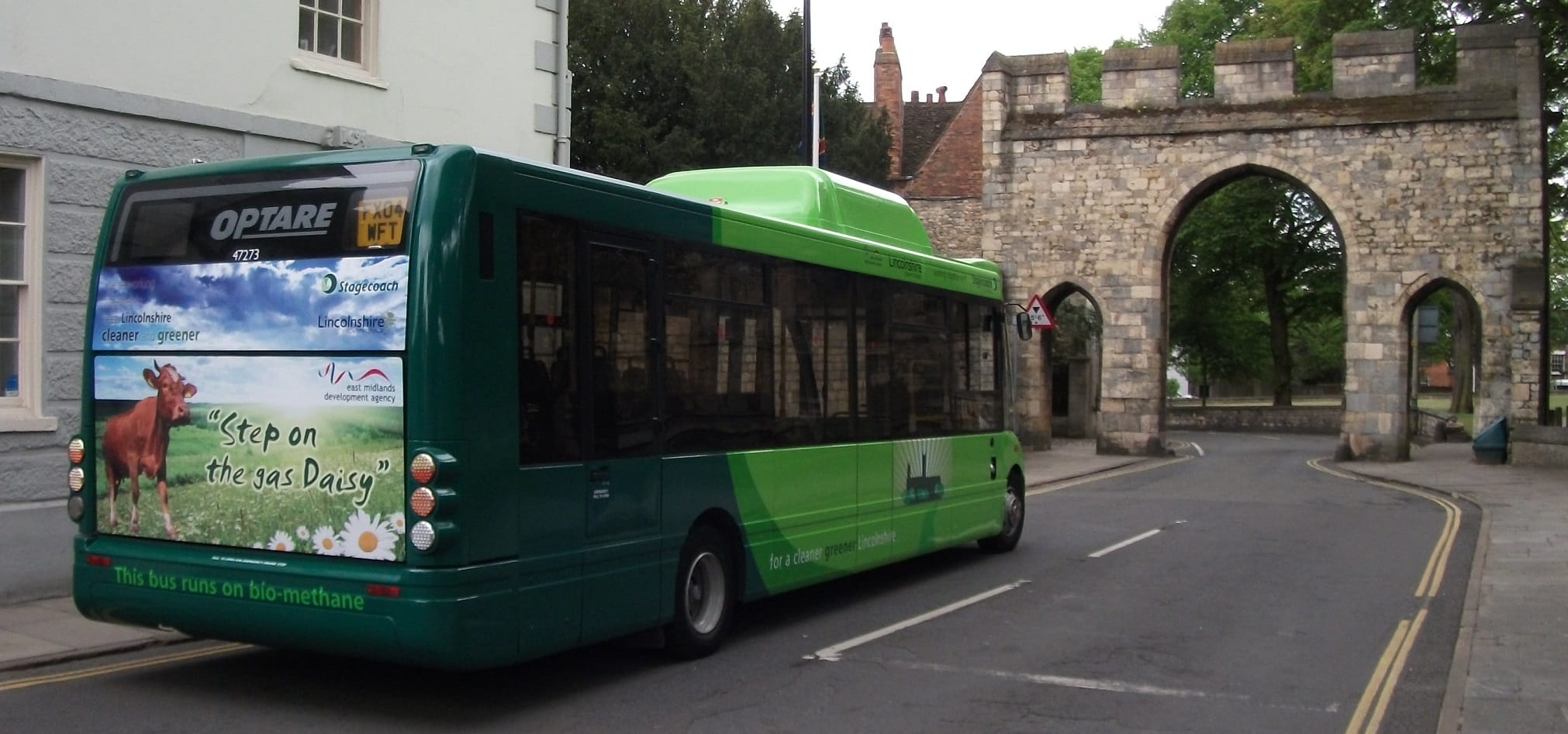Click to expand to full-screen. Click to download the file to your device.

Biomethane must be central to Clean Air Strategy – ADBA
ADBA has called on the Government to make buses and heavy goods vehicles (HGVs) fuelled by clean biomethane central to its Clean Air Strategy.
Biomethane is a low-carbon transport fuel produced by anaerobic digestion (AD), a natural process that breaks down organic wastes and purpose-grown crops to create a biogas that can then be upgraded to create a methane-based fuel. The UK AD industry has sufficient capacity today to produce enough biomethane to power the UK’s entire bus fleet, and the use of biomethane for buses and HGVs has increased in recent years in response to concerns over the cost of fossil-fuel-based fuels and their negative impact on air quality and greenhouse gas emissions. In May, Nottingham City Transport unveiled a new £17m double-deck ‘Bio-Gas’ bus fleet, the largest of its kind in the world.
ADBA’s call to arms comes as the Department for Environment, Food and Rural Affairs (DEFRA) has today published its plan to deliver nitrogen dioxide compliance in UK towns and cities, part of a wider Clean Air Strategy due to be published in 2018. The measures unveiled today include £255m of funding for local authorities to crack down on roadside emissions, including from buses and other types of public transport. Local councils will be required to produce local air quality plans that reduce nitrogen dioxide levels in the fastest possible time, while local authorities will be able to bid for money from a new Clean Air Fund to support improvements that will reduce the need for restrictions on polluting vehicles. This could include upgrading bus fleets.
The new measures announced also include the right for van drivers to use heavier vehicles if they are electric or gas-powered.
To reflect the growing interest in low-carbon fuels such as biomethane, ADBA will be hosting the third UK Biomethane and Gas Vehicle Conference on 28 September 2017 at the Queen’s Hotel in Leeds, bringing together transport, fuel infrastructure, freight, and logistics professionals and local authorities to share the benefits of biomethane and discuss what is required to stimulate and grow the market.
ADBA Chief Executive Charlotte Morton said:
The use of biomethane derived from well-managed feedstocks as vehicular fuel can help to reduce the scandalous levels of air pollution we see in towns and cities across the UK, costing thousands of lives each year.
Local authorities reading the Government’s air quality plans now have the perfect opportunity to follow the example of Nottingham City Transport and others in rolling out biomethane-fuelled municipal bus fleets, which can make huge improvements to air quality in the UK’s towns and cities.
Over the short to medium term, biomethane presents the only practical means of decarbonising HGVs, buses and non-road mobile machinery. While biomethane has the potential to power every HGV in the country and some pioneers have grasped this opportunity, far more support is needed from government to make it easier for others to follow their example.
It’s critical that the Government urgently delivers a robust response to the Renewable Transport Fuel Obligation consultation that concluded in January. Long-term support for AD is crucial for reducing emissions from the difficult-to-decarbonise transport sector and for improving air quality in our cities and towns to save lives.
Contact details:
Chris Noyce, ADBA PR & Parliamentary Affairs Executive
T: 020 3176 5441 E: chris.noyce@adbioresources.org



